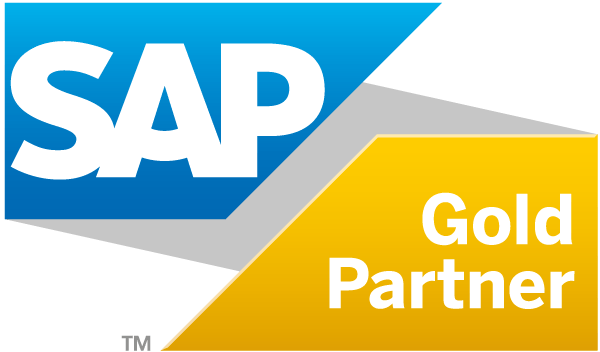Quickly available and reliable data characterizes a modern enterprise – be it for the field service use, as a communication platform with business partners or for checking warehouse stocks. The appropriate Cloud ERP system helps companies create the basis for long-term success.
Medium-sized companies in particular benefit from using cloud solutions as Software-as-a-Service (SaaS). ERP systems in the cloud accelerate and simplify both data exchange and process and system integration. SAP S/4HANA Cloud, the advanced Cloud ERP solution, enables a lean and modern IT landscape.
What are the benefits of erp out of the cloud?
Faster ERP implementation compared to On-Premises
Lower initial investments through subscription model on rental basis
Innovation power due to automatic upgrades and intelligent technologies
What are the benefits of a Cloud ERP system compared to on-premises?
- More competitive cost structure: no high initial investments in software and hardware due to rental model entailing considerably reduced total cost of ownership
- Flexibility & scalability: due to a lean IT basis, Cloud ERP can be adjusted to the corporate growth at short notice (e.g. additional functions, licenses, data stores)
- Agility & innovation: full ERP scope, which is updated by the provider with regular upgrades and releases and is therefore based on state-of-the-art technologies (e.g. AI)
- Mobility & real-time data: data, processes and functions can be called by any kind of terminal anytime and anywhere
- Focus on core competences: the company’s IT department focuses on business processes, innovations and further developments; service provider is responsible for securing IT operation, governance, maintenance, updates, application and lifecycle management
SAP S/4HANA Private and Public Cloud – THE SOLUTIONS IN DETAIL
The differences at a glance: public vs. private vs. on-premises
| SAP S/4HANA On-Premises | SAP S/4HANA Private Cloud | SAP S/4HANA Public Cloud | |
|---|---|---|---|
| Implementation | Conversion or new implementation | Conversion or new implementation | New implementation |
| Allowed Add-ons | All | Certified add-ons for SAP S/4HANA | Certified add-ons for Public Cloud |
| Upgrade provision | Annually | Annually | 2 times a year |
| Upgrade frequency | Flexible | At least every 5 years | Half-yearly |
| Software price model | Purchase, permanent license | Subscription | Subscription |
| licensing model | User-basiert | Flexible license distribution | Flexible license distribution |
FIS supports you ON YOUR WAY INTO THE CLOUD
Together with you, the FIS IT consultants evaluate the most suitable cloud strategy for your specific requirements. As an SAP partner with “Gold” status, FIS is certified and provides support in the analysis, consulting and implementation of the real-time ERP suite to cover all migration requirements and steps regardless of whether you choose Private Cloud, Public Cloud or a hybrid scenario.
In a complex IT world, experienced professionals and many years of know-how are essential for sustainable corporate success. A trained view from the outside as well as professional project assistance help to successfully master the business transformation into an intelligent enterprise and avoid typical errors.
FAQ on SAP S/4HANA Cloud
Interested in SAP S/4HANA Cloud? Request personal consulting
Request now for SAP S/4HANA Cloud – free of charge and without any obligation!
You are currently viewing a placeholder content from HubSpot. To access the actual content, click the button below. Please note that doing so will share data with third-party providers.
More InformationDo you have questions about SAP S/4HANA Cloud or the introduction of Cloud ERP in your company? FIS is at your side with many years of know-how in the area of SAP ERP projects and will advise you extensively on your individual starting position. Contact the IT experts to shape your path to the cloud together.


